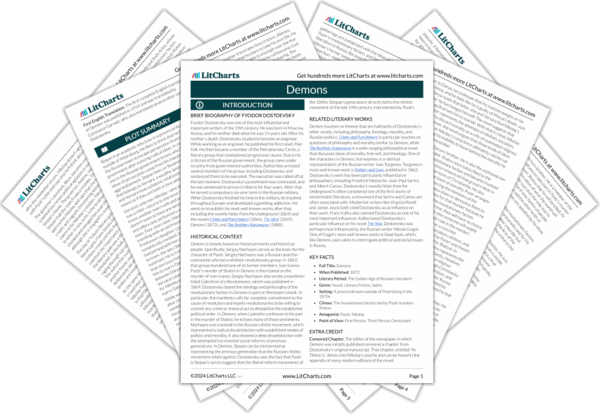In the letter to Darya, Nikolay showed that he was planning for the future, making it clear that, at the time of writing the letter, he had not decided to take his own life. With that in mind, it can be surmised that his guilt over his involvement in Marya’s murder continued to increase and ultimately drove him to die by suicide. In that way, Nikolay’s death gives the novel’s final word on the question of whether he was beyond good and evil by showing that he could not transcend morality—and perhaps should not have tried to.
